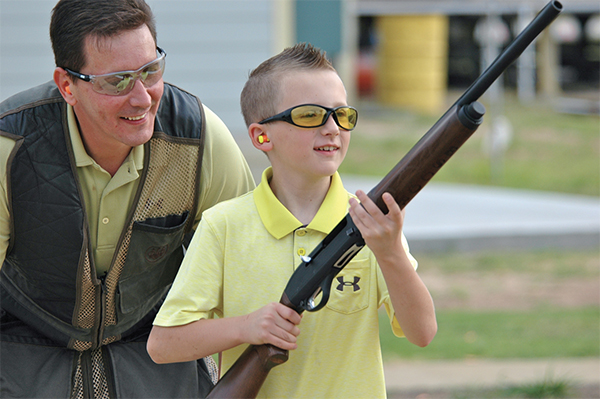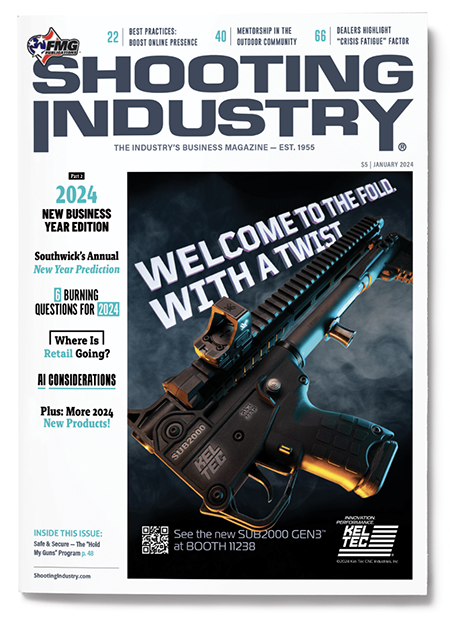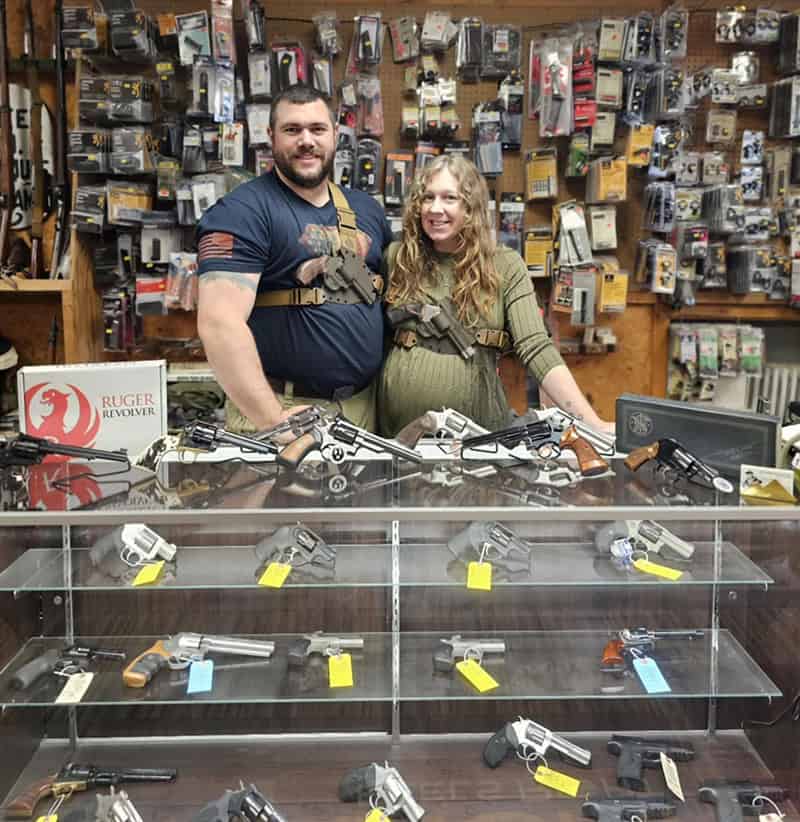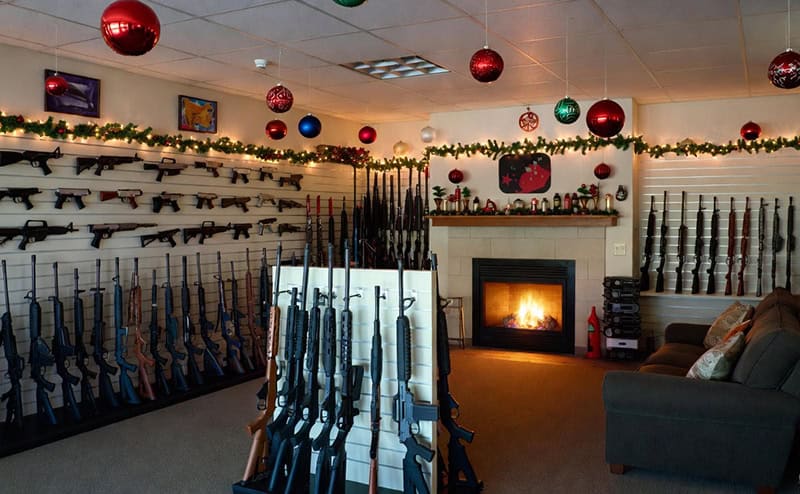Mentorship In
The Outdoor Space
How important is mentorship in the outdoor space?
On May 28, 2022, I married the woman of my dreams and together we have built the lives of our dreams. I owe it all to my childhood hunting mentor, Danny Towe.
Danny was a large man with a gentle soul from West Virginia who made his home in Hope Mills, N.C., where I grew up. I met Danny at Stoney Point Baptist Church when I started attending a Royal Ambassadors youth program. It didn’t take him long to figure out how to get and keep my attention: by teaching me anything about hunting.
Over several years, Danny spent many a Saturday teaching me how to hunt — or so I thought. We talked about wild game, habitat and guns. He taught me to respect the animals I chased, the woods we shared and the firearms we used. He taught me patience, attention to detail, compassion and mercy, all under the umbrella of hunting.
But his goal wasn’t teaching me how to be a better hunter; it was to be a better man. Once I remembered and finally applied what Danny taught me as a child, I ended up with a lot more than trophy bucks — I ended up with a trophy life.
That’s how important mentorship is.
Lessons Learned
Mentorship can be and often is the single best influence on a person’s ability to understand, cope and excel at life. As mentors, we need to understand the potential; we must do far greater good than just empower a first deer, shooting match trophy or outdoor lifestyle. We must yearn to inspire and empower a good life.
If you mentor with the goal of a trophy life, you’ll end up with a good hunter because they’re the same. You’ll also have good nurses, welders, teachers, husbands, wives and friends.
Several years ago, for my master’s capstone project at Virginia Tech, I started a youth nonprofit called The Green Bow Foundation. The idea came from more than a year of research that revealed the decline of ethical hunting advocates. It meant only one thing: we had to build a process that took someone who knew nothing about hunting and teach them everything the perfect hunter needs to be.
The process of building and running The Green Bow Foundation taught me quite a bit about our community, our society, our adversaries and, of course, myself. No surprise, I also learned a lot about successful mentorship.
Mentorship isn’t about teaching someone how much you know. It’s about empowering them to learn as much as they can. Ego is both a learning and teaching disability.
When it comes to children, you must account for more than just their curiosities; you must be welcoming to their peers, role models and parents’ concerns. You must earn everyone’s trust first — and having integrity is the best first step. The relationship you build as a mentor is the critical bridge between your knowledge and the knowledge your mentee is willing to receive.
Don’t set limits for people. Set expectations and let them rise to them. The difference here has ramifications that will be felt in a person’s life far beyond the task.
Don’t Set Limits
Speaking of limits, don’t limit yourself to one mentor’s opinion or method for learning. On this note, I’ve connected with several far better mentors in our community for their opinions, advice and reflections on mentorship in the outdoor business community and the outdoors in general.
First up is one of our industry’s best and most beloved mentors — Larry Weishuhn.
“I personally consider mentoring as a duty,” said Weishuhn. “I grew up with and around guns. I learned much from family and friends and from years of being in the shooting/hunting industry. If I can introduce someone to the proper ways of gun safety, shooting parlay and respect for life, then I am doing it right!”
Weishuhn expanded on his thoughts when asked about mentorship as a member of the outdoor community.
“As a member of the shooting/hunting/wildlife conservation ‘industry,’ I do think it important those of us who are in the industry mentor others whenever possible because obviously, as someone within the industry, there should be some ‘real knowledge’ based on years of experience,” he said. “As an outdoor ‘communicator’ we should have some communicative skills, taking what someone new to shooting might look at as being very complicated and breaking it down in layman’s terms.”
Provide “Organic” Mentorship Opportunities
One of the most complex parts of learning to hunt — in the outdoor industry specifically — is organic mentorship just isn’t there anymore.Regardless of their age of discovery, new hunters often must find mentors well outside their social circles — a fact not lost on another great industry mentor, Adam Weatherby, CEO of Weatherby Inc.
“Hunting is quite difficult to get into if you didn’t have a friend or family member who introduced it to you growing up,” said Weatherby. “From gear to access, to field dressing the animal … hunting can be quite involved. Therefore, mentorship in the hunting space is crucial to introducing new people to the outdoors.”
Weatherby added how his company prioritizes mentorship among its employees.
“In fact, Weatherby has a mentor program with our employees where a more experienced hunter can sign up to be a mentor and walk a first-time hunter through the entire process of taking their first big game animal locally here in Wyoming,” he said.
Let’s hear from an industry expert who built an entire business model off superb mentorship, Shoot Like A Girl’s Founder, Karen Butler.
“Mentorship is extremely important to our industry,” stated Butler. “SLG2 Inc.’s data indicates more than 26% of people we interact with don’t hunt but want to. People just don’t know what they don’t know — or even need to know — about taking those first steps. Although there is a plethora of information online, it can get overwhelming and confusing for a seasoned hunter, let alone a new hunter.”
Butler suggests having a mentor accompany someone new for all facets of the hunt.
“From pre-hunt preparations to the hunt itself, to the aftermath of the harvest (cleaning, preparing and cooking the meat), having a mentor present along the way makes the initial entry much more enjoyable,” she said. “It’s important new hunters not only have the experience of hunting but also enjoy the relationship we build with nature while we’re hunting.”
Mentorship Among Fellow Mentors
Let’s shift our focus from mentoring new outdoor participants to professional mentorship within the industry, where the need is just as great.
Federal Ammunition Conservation Senior Manager Jon Zinnel is one mentorship voice of leadership to listen to on this topic.
“Mentorship is extremely important for the shooting sports industry as it truly is a small industry with lots of longtime personal connections,” he noted. “The business structure may be similar to other industries, but with the political environment and sensitivity to many of the products we manufacture and sell, it’s important to truly understand the products and the heritage behind many of them.”
Jon shared his best advice to new mentors and mentees in and out of our industry, emphasizing experience.
“Whether you’re bringing a newcomer under your wing at a sales meeting to show them the ins and outs or providing them insight into how connections made now can benefit them in the future, experience matters,” said Zinnel. “Advice for the mentees would be to buckle up and get after it. When there is an opportunity, regardless of how challenging or uncomfortable it may look, I would advise jumping right in with both feet to truly understand the industry. An example would be someone who may want to get into sales or marketing; they should jump in to understand the manufacturing of the products so they can truly understand the business full circle.”
When I asked Jim Curcuruto, executive director of the Outdoor Stewards of Conservation Foundation, he wasted no time advocating for B2B mentorship within the outdoor industry. He immediately highlighted who he felt best-epitomized mentorship.
“Ruger is the best example of a culture of mentoring/succession planning I’ve heard of in this industry,” said Curcuruto. “Steve Sanettil, previous Ruger CEO and former NSSF president/CEO, told me Bill Ruger mentored him. Bill even helped Steve get his law degree to make him more prepared to take over as CEO one day. Then, after Steve left Ruger, I heard Mike Fifer give credit to Steve for mentoring him. Chris Killoy, current Ruger CEO, has repeatedly mentioned Mike Fifer was a great mentor to him.”
These are just two sources, of many, in the industry — there are lots of potential mentors out there.
Remember The Goal
Regardless of how you choose to mentor — or be mentored — remember the final goal isn’t a trophy harvest but a trophy life. Make it your goal and at the end of the day, you’ll have more success in and out of the deer stand — and so will the people you care about.







